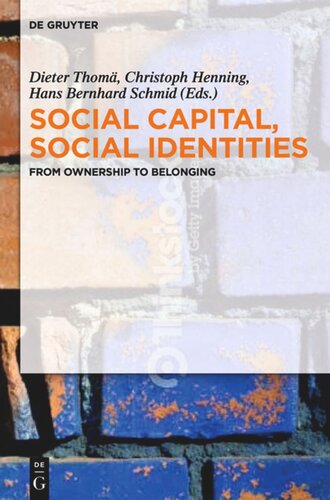

Most ebook files are in PDF format, so you can easily read them using various software such as Foxit Reader or directly on the Google Chrome browser.
Some ebook files are released by publishers in other formats such as .awz, .mobi, .epub, .fb2, etc. You may need to install specific software to read these formats on mobile/PC, such as Calibre.
Please read the tutorial at this link: https://ebookbell.com/faq
We offer FREE conversion to the popular formats you request; however, this may take some time. Therefore, right after payment, please email us, and we will try to provide the service as quickly as possible.
For some exceptional file formats or broken links (if any), please refrain from opening any disputes. Instead, email us first, and we will try to assist within a maximum of 6 hours.
EbookBell Team

5.0
100 reviewsCurrent research on social capital tends to focus on an economic reading of social relations. Whereas economists pride themselves on reaching out to social theory at-large, sociologists criticize the economization of the social fabric. The concept of social capital serves as a touchstone for the study of the role of the economy in modern societies. It serves as a breach for expanding the reach of economic categories, yet it also yields the opportunity for questioning and transforming economic premises in the light of social theory and philosophy. Exploring the concept of social capital in the context of related terms like embeddedness, trust, sociability, and cooperation is particularly instructive. This collection of papers from various disciplines (philosophy, sociology, economics, religious studies) combines conceptual studies and empirical findings. It is a plea for re-embedding economic thought in a broader theoretical framework. By exploring the varieties of social identities implied in the theories of social capital, the authors argue for a social (or more sociable) conception of man.